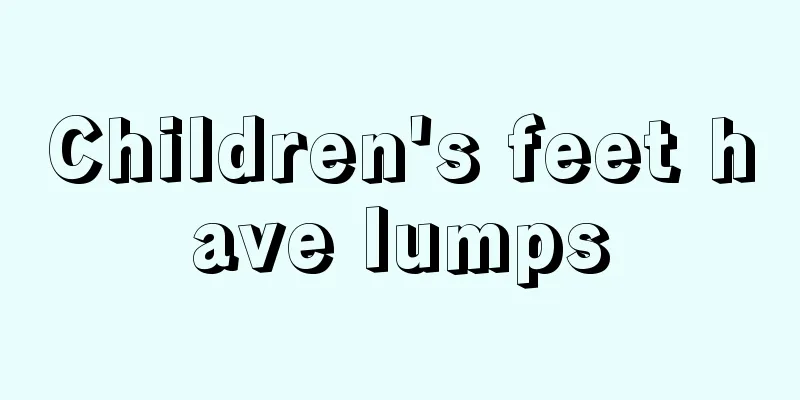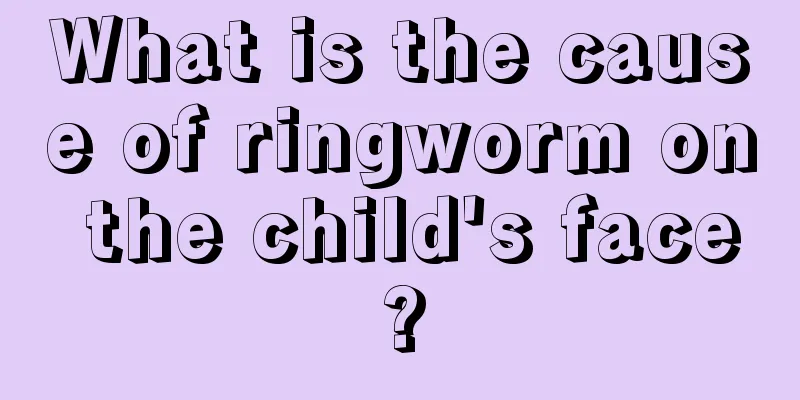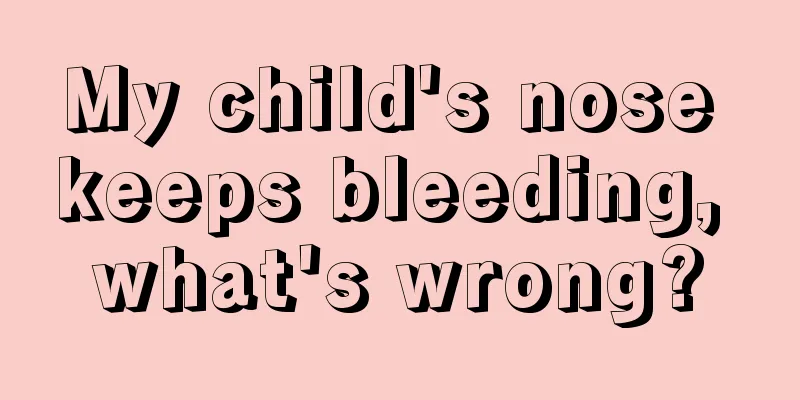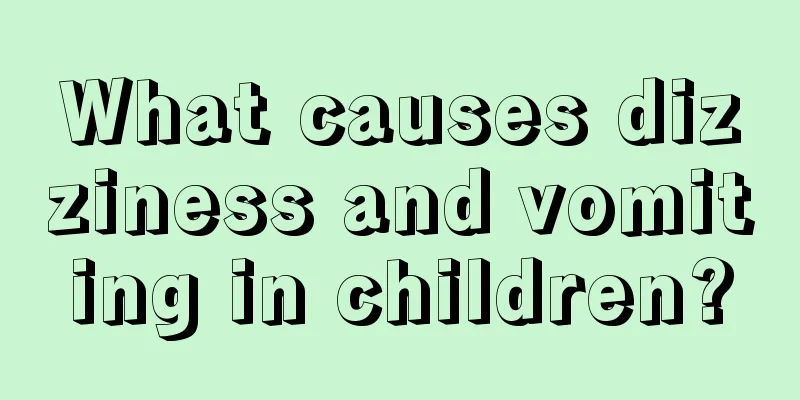What are the manifestations of mental retardation in babies?

|
Every year, some mentally retarded babies are born in our country, which brings great pain to many families. There are many reasons for the mental retardation of babies. Current research believes that the factors that cause mental retardation in babies include heredity, prenatal injuries, injuries during delivery, and illness after birth. It is often difficult to detect a baby's mental retardation, which delays treatment. However, there are still some symptoms of mental retardation in babies, which can be identified with careful observation. The symptoms of mental retardation in babies include the following: 1. Difficulty in feeding Appears in infancy. The earliest symptoms shown by infants with mental retardation are often difficulty in feeding, inability to suck, and being particularly prone to spitting up milk, which indicates damage to the nervous system and will affect their intelligence in the future. 2. Abnormal facial and body shape Some babies with congenital mental retardation have abnormal facial and body appearance. For example, children with congenital idiocy have eyes that are too wide apart, slanted eyes, flat noses, tongues that often hang outside the mouth, and drooling, which is what people often call an "international face." Children with hydrocephalus have particularly large head circumference, while children with microcephaly have particularly small heads. People with hypothyroidism are particularly short, people with phenylketonuria have abnormally white skin and very light hair, etc. 3. Motor development retardation Babies with intellectual disabilities have significantly slower motor development than normal babies. The starting age for movements such as raising the head while lying on the stomach, sitting, standing, and walking is later than that of normal children of the same age. This is especially obvious in walking. It is often not until the age of 3-4 or 4-5 that the child can walk independently, and the walking is unstable. 4. Language development is delayed Normal babies will imitate sounds at 7-8 months old, call mom and dad at around one year old, can say a dozen words at one and a half years old and understand simple instructions, can ask simple questions at around 2 years old, and can basically express their thoughts at around 3 years old. If these symptoms appear only after a child is four to five months behind or even one to two years behind, they should be regarded as a sign of intellectual disability. 5. Poor responsiveness to the environment Soon after birth, a normal baby begins to become interested in people and things in the environment, and as long as he is awake, he will always look around. But mentally retarded babies are indifferent to the environment. In the first 1-2 months after birth, the baby will not make eye contact with adults and will not smile when teased. He is very quiet all day and rarely cries. These babies are often praised for being too quiet, and their intellectual problems are often easily overlooked. 6. Hyperactivity In contrast to babies who are too quiet, hyperactivity is also a characteristic of some intellectually retarded babies. Many intellectually retarded babies cannot stay still for a while and are active all the time. This is especially evident in children aged 4-5 years old. This kind of hyperactivity is different from the liveliness and mischief of normal children. It has no purpose, but is just an uncontrollable excitement. He touches everything he comes across and even knocks over chairs and stools without knowing how to pick them up. 7. Lack of concentration Intellectually retarded babies have difficulty concentrating. Their attention span is significantly shorter than that of normal babies. Even when they are 5-6 years old, they can only concentrate on one thing for no more than 5-6 minutes. They also pay little attention to the outside world. 8. Visual and hearing impairment Severe visual and auditory defects, such as severe myopia, hyperopia, astigmatism, total deafness, and hearing loss, also have a great impact on intelligence. Because vision and hearing are the means of communication between people and the outside world, they will lead to intellectual development delay. The above symptoms all indicate that the baby may have mental retardation problems. Therefore, when you find these symptoms in your baby, you should take your baby to the hospital to ask for the doctor's advice in time, and conduct necessary examinations and give your child treatment in time. |
<<: What should I do if my baby coughs? These tips are worth a try
>>: What is the reason why my baby coughs?
Recommend
What is the cause of shortness of breath in newborns?
If people experience shortness of breath, we all ...
There is a bump on the back of my head, what's going on?
Many new mothers don’t know what to do when their...
How to give first aid to a baby with fever and convulsions
Young parents nowadays have no experience in rais...
Why does my baby cry at night?
We all know that babies are the hope of every fam...
If the baby is not calcium deficient, does it need calcium supplementation?
Children naturally cannot lack calcium during the...
The child's testicles hurt when touched
The reason why children's testicles hurt when...
How to treat red birthmarks on the newborn's eyelids
Most red birthmarks appear on people's necks,...
Effects of runny nose in babies
In the 1960s, our country had just embarked on th...
What types of hernias are there in children?
Nowadays, more and more children suffer from pedi...
How to stimulate a two-year-old baby to talk
Teaching a child to speak is a technical job. For...
What's going on with white spots on my baby's fingers?
Every baby is very cute, and parents are particul...
What to do if a 10-year-old child has phimosis
Most cases of phimosis in children are physiologi...
How to prevent cerebral palsy in infants and young children
Every baby is a little angel given by God to thei...
What are the causes of intestinal hernia in children?
If a child has a hernia, it will greatly affect t...
What to do if your three and a half month old baby doesn't like to drink milk
The physical development of babies is very import...









